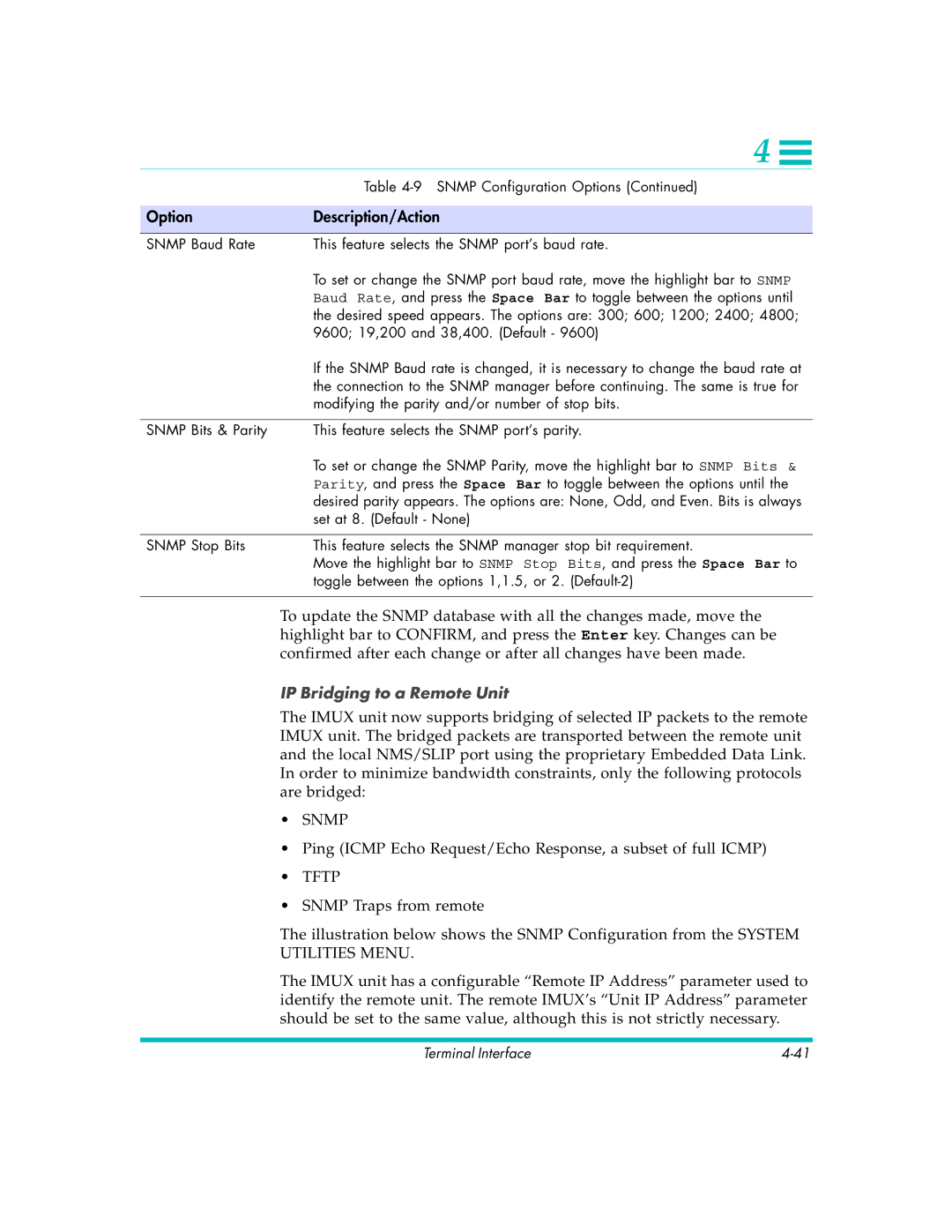
4 ![]()
| Table |
|
|
Option | Description/Action |
|
|
SNMP Baud Rate | This feature selects the SNMP port’s baud rate. |
| To set or change the SNMP port baud rate, move the highlight bar to SNMP |
| Baud Rate, and press the Space Bar to toggle between the options until |
| the desired speed appears. The options are: 300; 600; 1200; 2400; 4800; |
| 9600; 19,200 and 38,400. (Default - 9600) |
| If the SNMP Baud rate is changed, it is necessary to change the baud rate at |
| the connection to the SNMP manager before continuing. The same is true for |
| modifying the parity and/or number of stop bits. |
|
|
SNMP Bits & Parity | This feature selects the SNMP port’s parity. |
| To set or change the SNMP Parity, move the highlight bar to SNMP Bits & |
| Parity, and press the Space Bar to toggle between the options until the |
| desired parity appears. The options are: None, Odd, and Even. Bits is always |
| set at 8. (Default - None) |
|
|
SNMP Stop Bits | This feature selects the SNMP manager stop bit requirement. |
| Move the highlight bar to SNMP Stop Bits, and press the Space Bar to |
| toggle between the options 1,1.5, or 2. |
|
|
To update the SNMP database with all the changes made, move the highlight bar to CONFIRM, and press the Enter key. Changes can be confirmed after each change or after all changes have been made.
IP Bridging to a Remote Unit
The IMUX unit now supports bridging of selected IP packets to the remote IMUX unit. The bridged packets are transported between the remote unit and the local NMS/SLIP port using the proprietary Embedded Data Link. In order to minimize bandwidth constraints, only the following protocols are bridged:
• SNMP
• Ping (ICMP Echo Request/Echo Response, a subset of full ICMP)
• TFTP
• SNMP Traps from remote
The illustration below shows the SNMP Configuration from the SYSTEM UTILITIES MENU.
The IMUX unit has a configurable “Remote IP Address” parameter used to identify the remote unit. The remote IMUX’s “Unit IP Address” parameter should be set to the same value, although this is not strictly necessary.
Terminal Interface |
